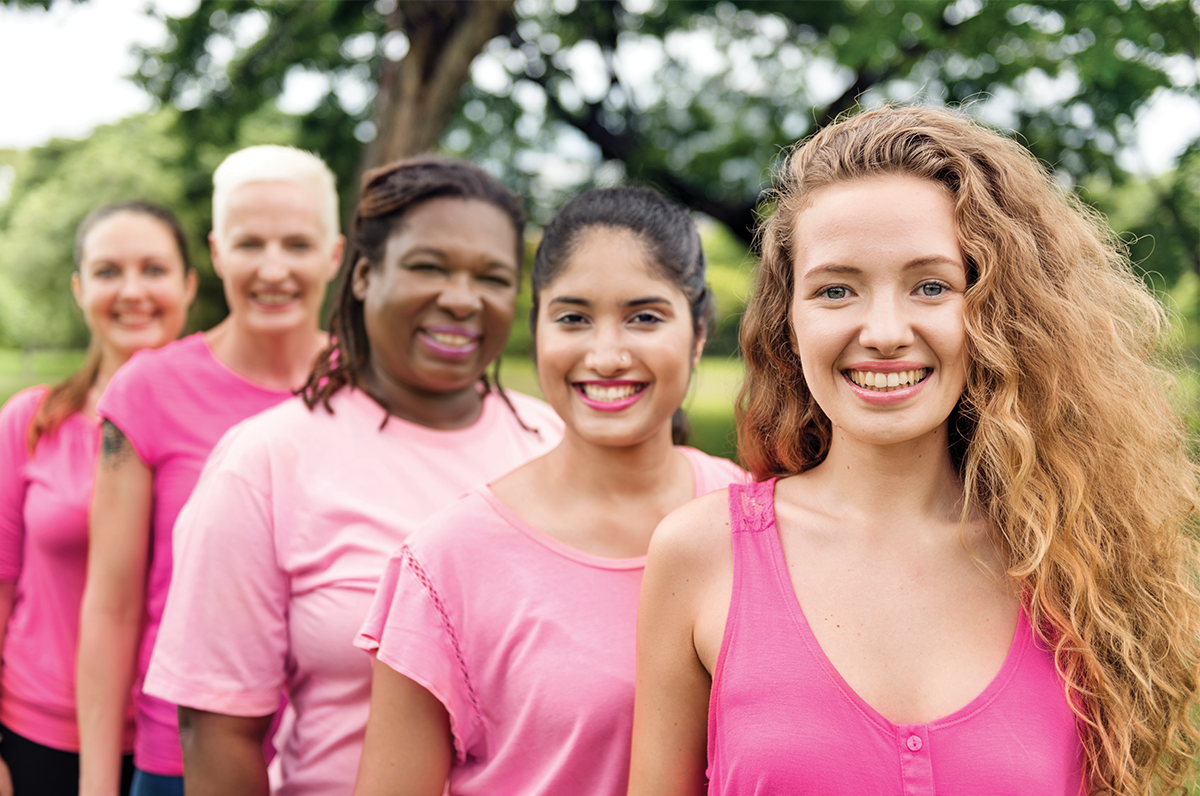Separate Fact From Fiction During Breast Cancer Awareness Month

Mammograms—useful for detecting early-stage and smaller cancers—save lives. They should begin at age 40. Additional or earlier screenings depend on the individual and are based on personal risk factors to be discussed with your doctor.
The more you know about breast cancer, the more prepared you are to fight it. Below are seven common misconceptions, and the information that separates fact from fiction, straight from some of Mount Sinai’s leading breast cancer specialists.
7 Common Misconceptions
Misconception #1:
Over 50% of breast cancer patients have a family history of breast cancer.
Fact #1:
The reality is, between 80-90% of all breast cancer patients have NO family history of the disease. In addition, only 5-10% of breast cancer patients have genetic predispositions or mutations that cause it. Your biggest risk factors are simply gender and age. So if you’re a woman over 40 years old, follow the CDC’s recommended screening guidelines.
Misconception #2:
Screening recommendations are the same for everyone, regardless of a family history of breast cancer.
Fact #2:
Those who may be at a higher risk (such as those with family history) may need to start screening earlier than age 40. If you have a first-degree relative like a mother or sister who was diagnosed at a certain age, your screening should begin 10 years before you are that age yourself. For example, if your mother was diagnosed at age 45, you should start getting screened at age 35. And if you carry a BRCA gene, you may need to screen as early as age 25.
Misconception #3:
Only women get breast cancer.
Fact #3:
Most men only have a 1% chance of getting breast cancer. But for men who carry the BRCA1 gene, their risk goes up to 1-2%. Men who carry the BRCA2 gene have a 7-10% chance—the same as women—of getting breast cancer.
Misconception #4:
Consuming too much sugar increases your risk of getting breast cancer.
Fact #4:
There are no human studies to support this theory. However, healthy eating habits can reduce your risk of developing cancer, especially if you have diabetes. A diet filled with plenty of fresh fruits, vegetables, beans, and legumes is good for everyone (for many reasons). Ask your provider what a healthy diet looks like for you.
Misconception #5:
Limiting alcohol consumption to several drinks per week can reduce your risk of getting breast cancer.
Fact #5:
Studies show there is no amount of alcohol that a human being can safely consume without any future risk for chronic disease. There can be a waterfall effect: An increase in alcohol intake can lead to a less healthy diet, and eating less fruits and vegetables is linked to a number of cancers.
Misconception #6:
If you tested negative for the BRCA gene 10 years ago, you don’t need to get tested again.
Fact #6:
If you haven’t been tested since 2013, you should get re-tested—today’s BRCA test is much more comprehensive and includes tests for another panel of genes like PALB2, CHEK2, and the ATM gene.
Misconception #7:
Not everyone needs to get tested for the BRCA gene—only some ethnicities are at risk.
Fact #7:
While there are certain ethnic groups that are at higher risk for having a BRCA gene, no ethnic group is without risk. In fact, there is a version of BRCA across all ethnic backgrounds.
Getting Support
If you’re due for a screening, have a family history of breast cancer or inherited changes in your BRCA1 and BRCA2 genes, or aren’t sure where or when to start, talk to your provider to create a personalized, preventive care plan. Additional or earlier screenings depend on the individual and are based on personal risk factors to be discussed with your doctor.